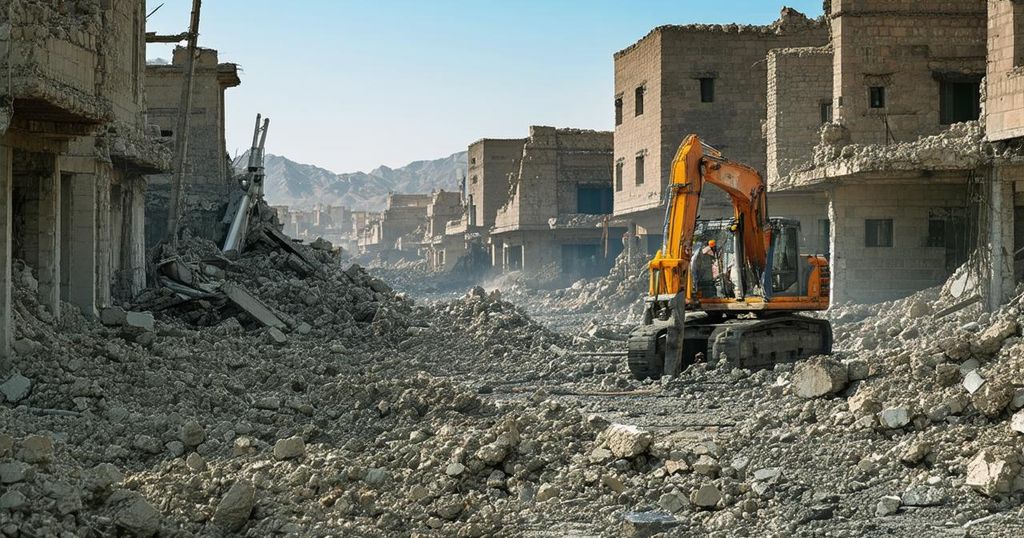Northeastern Co-op’s Role in Recovery Efforts After Morocco’s Earthquake
The article elaborates on Michaela Creel’s co-op experience with the High Atlas Foundation in Morocco, where she participated in recovery efforts following a significant earthquake. The foundation, focused on sustainable development, assists farming communities by promoting agriculture, empowering women, and restoring water systems. Creel’s role involved communications and community engagement, which enriched her understanding of Moroccan culture and traditions during her impactful five-month stay.
In the aftermath of a devastating earthquake in Morocco, the High Atlas Foundation has actively undertaken recovery efforts in the affected communities. This charitable organization focuses on sustainable development and has been crucial in assisting farmers who were directly impacted by the natural disaster. Michaela Creel, an international affairs and cultural anthropology major, participated in these endeavors during her co-op with the High Atlas Foundation. The region around the High Atlas mountains has a rich agricultural heritage, known for cultivating olives and almonds. However, the earthquake has amplified existing challenges for these farming communities, necessitating urgent help to promote resilience and sustainability. Michaela Creel’s involvement allowed her to engage in community outreach and hands-on assistance rather than merely observing from a distance. Established in 2000 by former Peace Corps volunteers, the High Atlas Foundation emphasizes three main objectives: agricultural advancement, women’s empowerment, and the development of water systems. The organization has produced over five million trees and focuses on enabling women to establish enterprises through educational workshops. Importantly, the foundation strives to ensure the sustainability of its projects by employing locals and having a community-based approach that identifies the specific needs of the villages it serves. Creel spent significant time assisting in the recovery of the farming communities affected by the recent earthquake. Her role primarily encompassed communications, during which she accompanied teams distributing saplings, engaging with farmers, and restoring vital water systems damaged by the quake. One of her notable projects involved creating an interactive digital tour of the foundation’s nursery in honor of International Forest Day, marking a milestone in her creative development as she had no previous experience in coding. Michaela’s immersion in Moroccan culture was enhanced by her living arrangements, allowing her to form relationships with locals and participate in cultural traditions, especially during Ramadan. Her experience has been characterized as more profound and enriching than a typical study abroad program, as she noted, “When you are working there, it is much more immediate.” These interactions fostered her understanding of the local culture and customs, thereby making her time in Morocco both impactful and transformational.
The High Atlas Foundation operates in Morocco, with a mission to enhance sustainable development through community-centric initiatives. Established by former volunteers of the Peace Corps, the organization focuses on three primary areas: improving agricultural practices, empowering women, and enhancing access to clean water. These initiatives are especially pertinent after the earthquake that struck the High Atlas mountains, which challenged the existing agricultural systems and rural livelihoods that are integral to local communities. The foundation’s commitment to long-term, sustainable solutions is underscored by its reliance on local knowledge and workforce.
The article highlights the critical role that the High Atlas Foundation plays in post-earthquake recovery efforts in Morocco, demonstrating a strong commitment to sustainable development and community empowerment. Michaela Creel’s co-op experience exemplifies the positive impact such initiatives can have on individual growth and community resilience. Her deep engagement in agriculture, women’s empowerment, and clean water projects reveals the interconnectedness of these efforts and the importance of local involvement. Ultimately, the foundation’s work is vital for both the immediate recovery and long-term sustainability of the affected communities, fostering resilience in the face of natural disasters.
Original Source: news.northeastern.edu




Post Comment